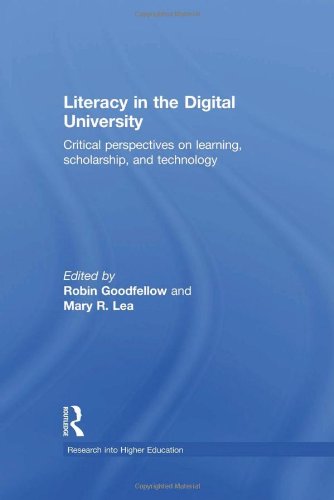

Most ebook files are in PDF format, so you can easily read them using various software such as Foxit Reader or directly on the Google Chrome browser.
Some ebook files are released by publishers in other formats such as .awz, .mobi, .epub, .fb2, etc. You may need to install specific software to read these formats on mobile/PC, such as Calibre.
Please read the tutorial at this link: https://ebookbell.com/faq
We offer FREE conversion to the popular formats you request; however, this may take some time. Therefore, right after payment, please email us, and we will try to provide the service as quickly as possible.
For some exceptional file formats or broken links (if any), please refrain from opening any disputes. Instead, email us first, and we will try to assist within a maximum of 6 hours.
EbookBell Team

4.8
54 reviewsLiteracy in the Digital University is an innovative volume bringing together perspectives from two fields of enquiry and practice: ‘literacies and learning’ and ‘learning technologies’. With their own histories and trajectories, these fields have seldom overlapped either in practice, theory, or research. In tackling this divide head on, the volume breaks new ground. It illustrates how complementary and contrasting approaches to literacy and technology can be brought together in productive ways and considers the implications of this for practitioners working across a wide range of contexts.
The book showcases work from well-respected authorities in the two fields in order to provide the foundations for new conversations about learning and practice in the digital university. It will be of particular relevance to university teachers and researchers, educational developers and learning technologists, library staff, university managers and policy makers, and, not least, learners themselves, particularly those studying at post-graduate level.